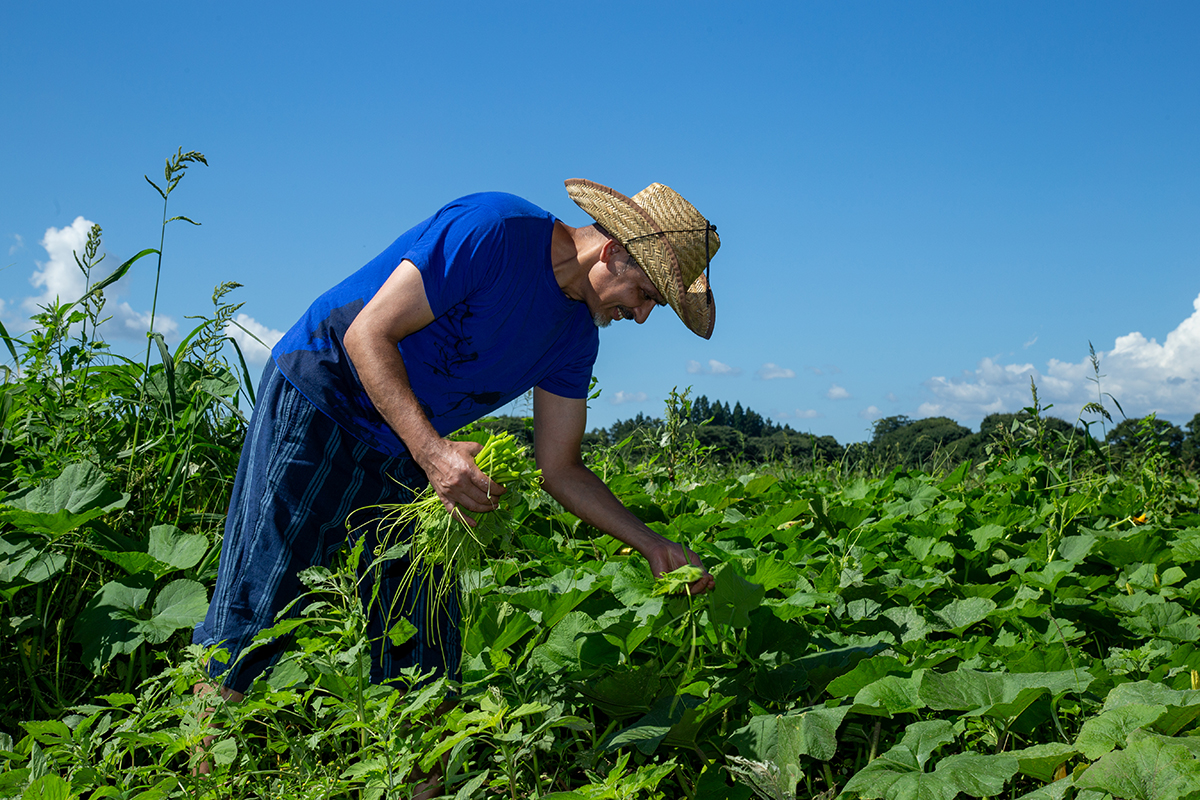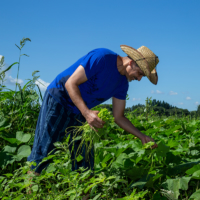Hotel Continental Fuchu, about a one-minute walk from Fuchu Station on the Keio Line in the suburbs of western Tokyo, offers one-of-a-kind dining experiences featuring organic vegetables, fruits, eggs and wild herbs. This is because the hotel’s buffet and French and Chinese restaurants — as well as its banquets — serve meals made with fresh produce delivered directly from Tohoku Bokujo Ranch, its private farm in Aomori Prefecture.
Tohoku Bokujo stands out because it took up organic farming as early as 1987, when society still prioritized mass production and efficiency. This early start is important because a completely chemical-free environment cannot be achieved overnight and it takes many years for soil quality to change.
Also, Tohoku Bokujo started out as — and still remains — a directly managed ranch for raising thoroughbreds. The horses’ manure is used to grow the farm’s agricultural products, including the dent corn fed to its chickens. Racehorses undergo extremely strict doping tests, and the grass and hay they eat cannot contain any chemical substances, meaning their manure is naturally chemical-free. The 100-hectare farm, about the size of 21 Tokyo Domes, is home to more than 100 crops, including wild herbs.
“You may think that good vegetables are those that are juicy, but the tissues of such vegetables are filled mostly with just water. Tissues of truly good, nutritious vegetables are dense, making the texture firmer and crunchier. And compared with vegetables grown with excessive amounts of chemical fertilizers and water, organically grown vegetables taste richer because they have fought for what they need in order to grow — water, sunlight, nutrition and so on,” General Manager Yu Osumi explained.
Executive chef Meghanath Aryal joined the hotel three years ago. He tastes the individual ingredients when he plans menus, but when he first stood in the kitchen and took a bite of a fresh Japanese radish from the farm, he was pleasantly shocked.
“When I tasted a daikon radish from Tohoku Bokujo, I was surprised and impressed that it tasted just like the daikon I used to eat in my hometown in Nepal; it was my first experience in over 30 years of being a cook in Japan. In my hometown, my parents grow vegetables and other produce without using any pesticides or chemical fertilizers, just as they do at Tohoku Bokujo, and their vegetables have the wild and pungent flavor of vegetables that have fought for their survival. I felt the same life force in the daikon radishes grown at Tohoku Bokujo,” Aryal said.
Since then, the chef has worked to maximize the charms of the farm’s produce in the dishes he serves, while maintaining the close partnership and collaboration with the people working on the farm.




